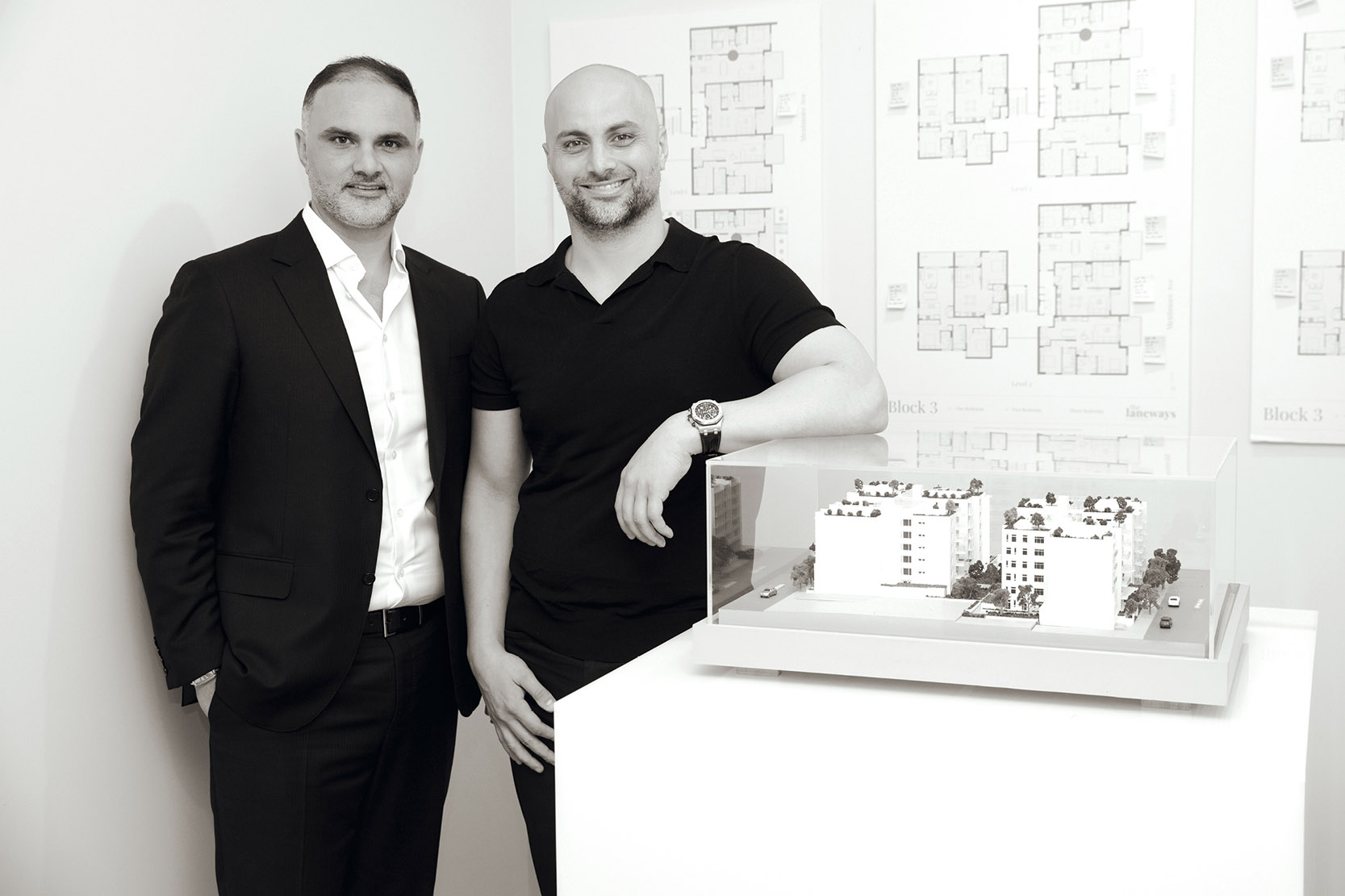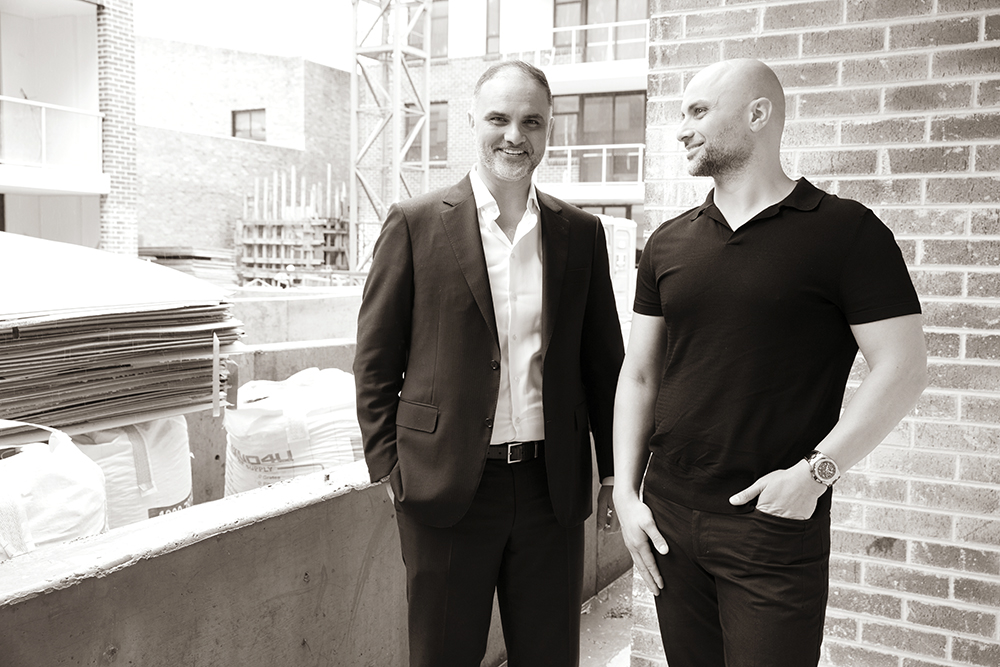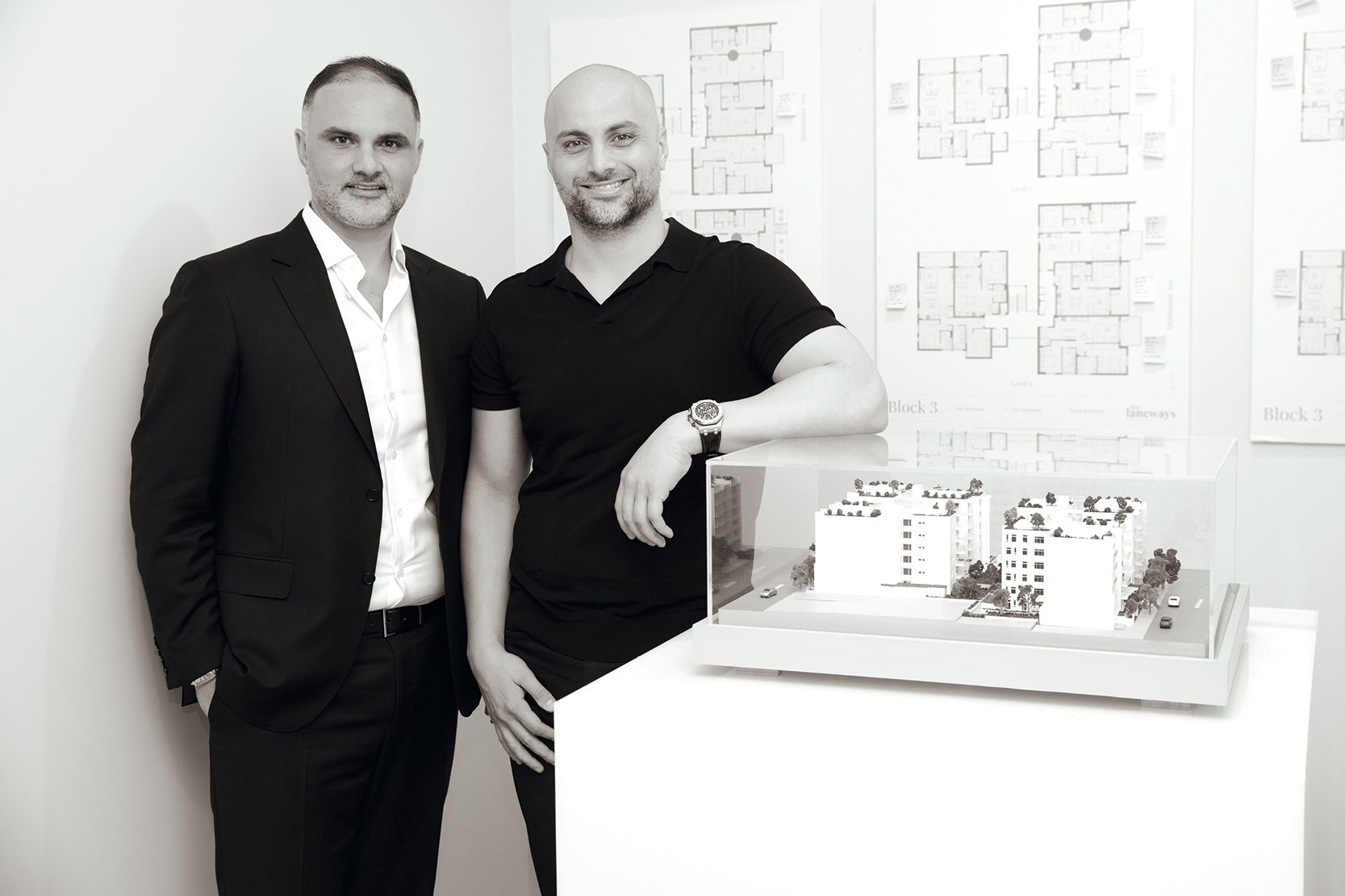To say that brothers Fayad and Remon Fayad have property development in their blood is something of an understatement. Both have been in the business since the day they left school and between them have 40 years’ experience, including working with their father on many high-rise builds in Western Sydney.

But last year, they announced a brand-new venture, Ellerson Property, a development agency based in Parramatta. They already have three major projects lined up including South Quarter, a 14,287-square-metre precinct around Church Street with five residential and commercial towers with approval for 750 apartments, a hotel and community park. Tesla were the first tenant to sign on. In addition, they will develop a 62-storey tower across the road from South Quarter. Ellerson Property also has a green development planned for Croydon Park in Sydney’s Inner West that will incorporate learnings from the pandemic to deliver a luxe and sustainable apartment precinct that immerses residents in nature.
The CEO Magazine sat down with Fayad and Remon to discuss their ambitious plans.
You have a lot on your plate considering you only launched a few months ago. Can you tell us about Ellerson Property?
Fayad: Yes, we’d been thinking of setting up a development agency to manage our family’s property assets for two years and it finally launched in October 2020. We’re different from a property developer as we don’t actually own the sites. The family identifies a site for a residential or office block, purchases it and then engages Ellerson to deliver the project. We oversee the construction process from start to finish and then stay on to manage the building going forward.
Remon: Our main focus will be land owned by the family, but we’re set up so we can also do third-party work as well. Our head of sales can provide a service to another developer and our property manager can oversee the leasing of a large building if another firm needs that to happen. We have 30 staff right now, but that will change as projects move into the launch phase.
Fayad: We want to futureproof the business so that it can turn into an independent property operation with third-party landowners. In the past, we’ve been approached by asset-rich individuals and companies who either don’t understand the Western Sydney market or haven’t got any construction knowledge.
Even before the pandemic, there was less and less reliance on Chinese money in the market, and it wasn’t having an effect, so I think the dominance has been overstated. – Fayad Fayad
How is the commercial property industry in Australia at the moment? Has COVID-19 had an impact?
Remon: In some ways the pandemic helped us because everything slowed down and it gave us a chance to open the business and establish ourselves. The virus made a lot of people reassess their lives and what they were going to spend money on. They stopped and said, ‘OK, I’ve got money, what do I do?’ The media were giving out these dire warnings about property prices falling off a cliff, dropping 50 per cent in value, but they got it wrong. We’re still selling apartments. The way Australia handled it compared to the rest of the world gave people confidence.
Fayad: Also, people have got used to remote working and flexible hours. What we’ve found in Parramatta CBD is that they want apartments close to their work so they can commute relatively quickly. This has meant that there are a lot of renters coming in, which has really accelerated our plans to build affordable accommodation.
There have been predictions that declining Chinese investment could deflate property values. What are your thoughts?
Fayad: Even before the pandemic, there was less and less reliance on Chinese money in the market, and it wasn’t having an effect, so I think the dominance has been overstated. And, anyway, as Chinese investment has slowed, the Indian market has really picked up. There was certainly a pause and a lot of people were worried about media reports that prices would bomb, but now everything’s back to how it was and prices are as buoyant as they were before.
There’s more awareness now that leaders have to have time to switch off. How do the two of you relax away from work?
Fayad: With three kids under six, there’s isn’t much time for relaxing! I just dive into their worlds as much as possible, become absorbed by what they’re doing. When you’re a business owner, you never completely switch off, but it’s nice to have distractions. If you’re worrying about work on a Sunday night, and then worrying on Monday morning, then you haven’t had a break. You’ve just got to force that switch off.
Remon: Sport is my big thing. I’m a huge LeBron James fan, so whenever I want to switch off, I’ll just watch LeBron. He’s so inspirational – incredible basketballer, family man, businessman. He’s got it all. I can relax watching one of his games from 10 years ago or one from today. I love travel too, but that’s off the table right now.
Fayad: In my father and grandfather’s era, you burned yourself out because that’s what everyone did. I mean, it’s not always easy – work is always there so I can’t say, ‘These are my work hours, these are my family hours. I work Monday to Friday and the weekend is mine.’ It’s not linear, it’s an integration and it can be by the minute. I’ll admit I do find work–life balance difficult sometimes. The family can be involved in the business side, so it’s about bringing them on a journey as well so the two sides are integrated.

BROTHERLY BOND
FAYAD: Working together as brothers has never been a problem as we’re very similar and have the same vision. If Remon makes a decision, I have confidence it’s the right one and we run with it.
REMON: We both worked closely with our dad and that taught us a lot. Growing up, he made us work for everything so nothing was handed to us on a platter. We worked through school holidays and then started working with him as soon as we left school. We have different skills – Fayad’s strength is architecture and construction whereas I’m good at planning and acquisition, so we work really well.
You’ve stated that one of your aims with Ellerson is to achieve market leadership. How are you going to do that?
Fayad: The development agency model will allow us to attract a different type of property professional. The best ones aren’t necessarily those who are already working in a developer’s office, they’re external contractors or consultants. It gives us flexibility and means those who are working for us aren’t confined to just one developer working on one project. There are two types of property professionals, ones that value stability and those who are more adventurous. I think that maybe the former is more suited to working for a marketing or real estate agency. We’ve worked with many like that in the past, but personally I’m more flamboyant and love flexibility and being more externally aware of new ideas and possibilities.
Remon: It’s important to us that we come to be seen as not just the market leaders, but also the best people to do business with. Whether it’s a mum and dad buying an apartment or even wanting to do their own construction project, we need to be the go-to developer who can be agile. We’re not like one of the major developers who builds apartments, sells them and then moves away with a ‘See you later!’ We want that family feel, staying on to help out in any way we can. We’re just excited to be on a journey with people as it’s a new chapter for us too.



